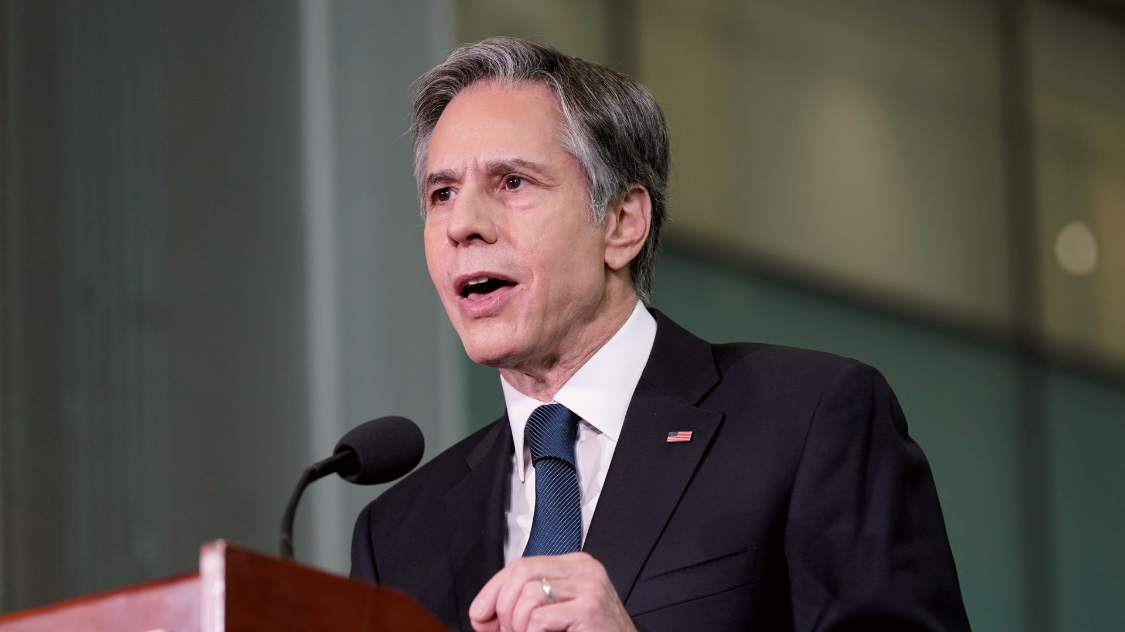Drifting apart
Not only a gulf is emerging in US-Pak relations but also the Taliban is likely to dump Pakistan once its ends are achieved

The US-Pakistan ties are rapidly deteriorating at this point. It has reached its nadir with no signs of repair — at least in the immediate future. In the first hearing of the US Congress on September 13, the US Secretary of State, Antony Blinken, told the Foreign Affairs Committee of House of Representatives that "Pakistan has a multiplicity of interests, some that are in conflict with ours". Answering queries from the lawmakers, he said that it was time for the US to reassess its relationship with Pakistan, and assured that the US will be doing that very shortly. According to him, Pakistan's role in Afghanistan in the last 20 years has been suspiciously negative and the same could be true in the future as well.
The US is particularly unhappy with Pakistan over the latter's attempts to influence the Taliban leadership in the formation of the Cabinet of Ministers which is devoid of a single woman member. Ignoring women means that they will again — like in the previous Taliban regime — stand ignored and deprived of rights. The cabinet, as promised by the Taliban, is not inclusive in nature and fails to balance the representation of ethnic groups. On the contrary, it comprises violence-loving religious ultras who are nurturing an agenda full of tenets of Sharia and regression, with hardly any space for the well-being of ordinary Afghans, men, women and children.
Significantly, the ISI chief Lt Gen Faiz Hameed's direct intervention in allowing the Taliban to achieve what it wants is indeed unsettling for the US. This is being seen as another irritant in the US-Pakistan ties plummeting to the point of no return, albeit for the time being. There are a couple of more developments that could bother the US vis-à-vis its relationship with Pakistan. For example, the Qatar Foreign Minister Sheikh Mohammad bin Abdulrahman Al-Thani was in Kabul on September 12 as the first foreign dignitary to hold talks with the Taliban leaders after the regime change. He met the Taliban Prime Minister Mullah Hasan Akhund and held extensive talks with concerned authorities. Now, this is a significant and major happening. Earlier too, Qatar had been involved with the Taliban right from the beginning of the Doha talks. Analysts reckon that Turkey, Pakistan and Qatar have recently emerged as the most acceptable players for the Taliban.
As is commonly known, Turkey had been shrewdly supporting the Taliban and backing Pakistani plans to ensure the Taliban's triumph. The nexus between Turkey, Pakistan and Qatar is well known. Turkey had also been promising to guard the Kabul Airport and now wants to extract its pound of flesh by flexing its muscles to get a toehold in Afghanistan. Pakistan is already glued to Turkey by being overboard politically and militarily. Both have India as their target in the pretext of Kashmir, and Qatar remains a protégé of Turkey. Also, Turkey wants to deny Saudi Arabia any political space to meddle in the Taliban affairs.
Meanwhile, Pakistan has been the first foreign country that was allowed with no strings attached. So, we see a spiralling nexus between these three countries as absolute and complete. Other than the syndicate of these three powers directly supporting the Taliban Emirate in all forms, China remains yet another formidable actor in the prevailing scenario; though its interests are quite different, India remains a common factor in its scheme of things.
In the meantime, while India is watching the down-sliding of the US-Pak liaison, further reinforcing the Indo-US ties seems to be brewing as the Indian Prime Minister appears set to discuss the current Afghan situation with the US President. Preceding this, there had been a flurry of activities in New Delhi with security and Intelligence heads of Russia, the UK, and the US holding top-level crucial parleys, yielding tangible professional results.
In a separate assessment of Pakistan's role in the affairs of the Taliban, Pakistan may be holding all its aces up its sleeves as of now, yet the majority of the analysts are more or less on the same page on their views on this. It seems premature to give a sweeping statement now amid reports of sporadic anti-Taliban protests in Kandahar and some other parts of Afghanistan. Similarly, groups of Afghanistan women and those concerning human rights have come to notice, vehemently airing their grievances against the Taliban's discriminatory steps marginalizing the women. The fierce resistance put up by the Northern Alliance despite the Pakistan army's direct involvement, is noteworthy. All these factors may build up momentum in due course which may continue to pinprick the Taliban.
These cautions apart, once the Taliban, by using brute force, settles down after snuffing out the protests and once they feel they no longer need the partnership of Pakistan, the latter is likely to be dumped like a hot potato. Eventually, Pakistan's present euphoria may turn out to be short-lived. Hence, Pakistan needs to heed the red lines and writings on the walls before the cantonment in Rawalpindi raises their toast to the Taliban. Any political dispensation, with religious extremism as its bane, can never depose trust in any friend and, for them, everything is tentative and starkly based on opportunism. Who knows If India at some point in time helps war-torn Afghanistan with colossal economic and relief packages, the Taliban might extend its hand to India at the cost of Pakistan. This may sound utopian now but, with the diplomatic offensive it has mounted, and the way it has rallied international support, Pakistan could possibly be relegated to some kind of isolation.
The writer is a retired IPS officer, a security analyst and a former National Security Advisor to the PM of Mauritius. Views expressed are personal



